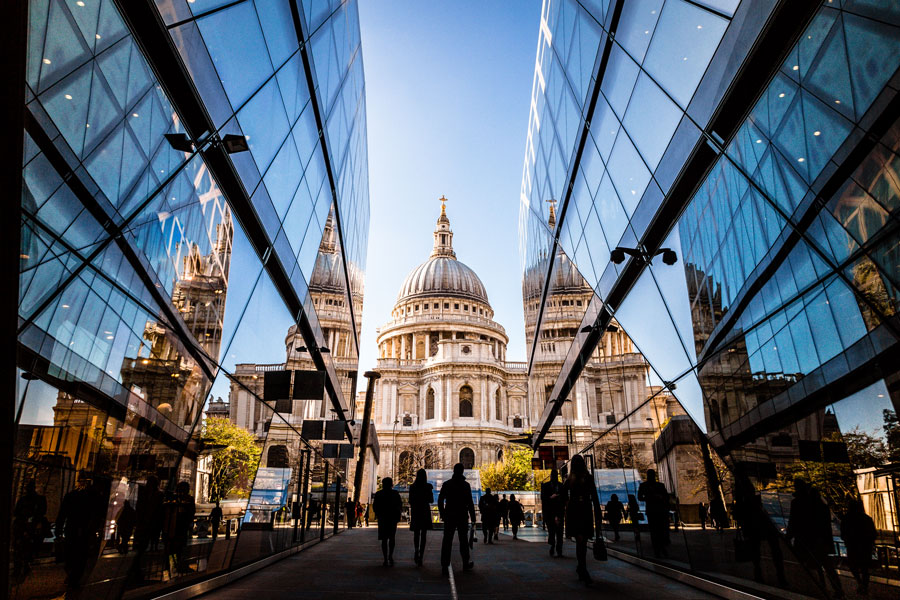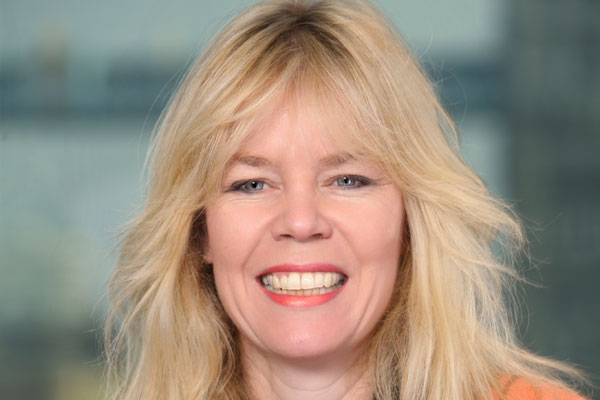Tracy Halliwell MBE, director of tourism, major events and conventions at London & Partners talks to Martin Fullard about identity and the government’s change of tune.
Tell me about your career journey?
Like most people when they are young, I didn’t know what I wanted to be when I grew up. I ended up doing a degree in hotel catering and management at Bournemouth University because it sounded like fun. This subsequently led me into the hotel world, which eventually saw me undertake a graduate training scheme with Crest Hotels.
In that role I worked around sales and marketing, but also on functions like meetings and events. I worked for a number of major hotel companies in sales and marketing positions, including three years in the US with Meridian Hotels, where I was vice president of sales and marketing selling back into the UK. I returned to the UK and continued in hotels.
I had my first child late in life and decided that, after 20 years, I no longer wanted to work in the that sector. It’s incredibly hard work around the clock. In 2006 I joined London & Partners, which was VisitLondon at the time. It was a new organisation and had just given funding by the mayor. We had to build the convention bureau almost from scratch.
Tell me about your role at London & Partners, and how do you promote the city as a business events destination?
My job is to inspire. We want people to think about London when they are planning a meeting or event, and to help them unlock this big city. Owing to its size, it can be difficult to manoeuvre, what with the all the different boroughs and organisations, 160,000 hotel rooms, and some 3,000 venues. If you are a meeting planner on the other side of the world then it can seem daunting.
We help organisers navigate the obstacles, and on top of that can help arrange things like speakers, offer introductions to potential sponsors, and can help to increase delegate numbers.
Are there any big events which are coming in 2020/21 that you’ve had a hand in?
I think the biggest event is the European Society of Cardiology in 2021. We hosted it before in 2015, so I like to think we did a good job because we have successfully won it for a second time. It is Europe’s biggest association event, and will see roughly 35,000 delegates hosted at ExCeL London.
How does London compare to its rivals at the moment as an events destination?
I think despite what is going on in the world, London is, and always will remain, one of the major global destinations. Organisers bring events to London because they usually see a delegate uplift, especially from those in more senior positions. Part of that is down to English, the language of business, which means that people feel more comfortable when holding an event here. We have one of the highest proportions of European headquarters in London, so if you want to connect with companies, it is the place.
There is a lot of anecdotal evidence that London-based businesses benefit from senior personnel attended conferences in the city. Of course, we may no longer be an EU member, but we are still in Europe. We did not see a huge downturn of business after the referendum. Where perhaps the European markets did dip, we have more than made up for from Chinese, Indian and American markets. The exchange rate reducing has gone in our favour. A weaker pound sterling has meant London is more reasonably priced. The capital always seems to remain a sensible, safe and solid choice of destination.

In the context of business events, how has the product changed since you have been involved?
The product has changed enormously, and London is ever changing as a city. In the run-up to London 2012 Olympics, some 8,000 hotels entered the market within the preceding 2-3-year period. That growth has continued, and we have another 10- to 12-thousand rooms in the pipeline ready to open over the next three years. In terms of venues, we have always allowed innovation in venue space, such as pop-ups. The Olympics was the catalyst for that. People are using spaces now that they never have before. As an industry we have grown up. We are far more mature in how we handle business and delegate registrations, ROI and data analytics. Whereas when I first started we were seen as the ‘party people’.
Are we overcoming the lack of identity and appealing more as an attractive career option?
Yes, I think it is a notable career option. There are now more event management courses, more apprenticeships, more festivals, and more exciting events. The problem still lives in the fact that if you are working in the event department for a major bank, are you in the finance sector or the events sector? We stretch across every single industry, yet it can be difficult to have a voice when it comes to government. I have been sitting on the Event Industry Board for three years and it is something we struggle with, although progress has been made.
The government is now starting to understand the events industry, I think that is due in part to Brexit, which opened up new opportunities for growth. Events are a showcase. Former prime minister David Cameron went to the CeBIT event in Germany a few years ago and came back asking why we don’t do more of this. That is when the conversation started to change. There is now the event industry fund, where any event organiser with a new event can apply for funding. There are obviously criteria to be met, but that is something we didn’t have a few years ago. We are putting big bids together for interesting events and they will get their resources to come behind it.
London Tech Week is huge for London. In 2019, we had the prime minister open the event. The government is seeing events as a way to tell the UK story. It’s always something we have done with the mayor’s office and with the chief digital officer in London, even in terms of getting the mayor to meet a cardiology team, for example. The model we have here, where you have got foreign direct investment and business tourism together, is a microcosm for what is happening in central government, I think. The Department for International Trade is talking to the Department for Culture, Media and Sport, and collectively they are seeing what similarities they have which we could use to tell the story of London.
The dialogue is there, but we sometimes do not help ourselves in this industry, as we don’t always have a collective voice. It can be difficult to get people engaged in this because we are busy running events and doing our own thing, which is the problem; we are a busy industry.
Where does London & Partners stand on promoting sustainable events?
Climate change is happening, and we need to solve it. Mayor Sadiq Khan has taken the lead on climate action goals. We are committed to work to with the mayor’s team and how we can spread this through the world of hospitality. The mayor’s office ran, and we supported, Climate Action Week in 2019, which will be repeated in June. We run a lot of sessions with our partners and guest speakers to discuss relevant topics and what they have done already or what audiences can do.
My colleague Paul Black is leading the charge in the role of a sustainability champion, where he looks at measures that can be put in place to see if people are making a difference or not. We absolutely believe we have to be ahead of the game and London, as a smart city, has got to lead the world. Our members contribute with ideas and input.
Tell me about your MBE award, it must feel quite special.
In 2014 I received a letter with an ‘ER’ stamp on it, and my first thought was that I had been called to court! I was taken aback when I opened it; “this is incredible,” I thought. You are not allowed to tell anybody and have to keep it secret until the official announcement. It was awarded for services to business tourism, which for me showed that business tourism was on the radar, which made it even more special.
When I collected it, I met the Duke of Cambridge at Windsor Castle. He said: “I understand you’re responsible for bringing 35,000 heart specialists to London,” and I asked how he knew. He said: “I’ve done my homework.”
There was a recognition of who we are and what we have done, and I’ve got it for something that’s important.















